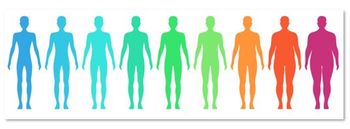
CDEP: A Half Glass of Wine Daily May Add Years to Life
ORLANDO, Fla. -- Men who limited alcohol intake to less than a glass of wine a day lived about four years longer than those who consumed similar amounts of beer or spirits, researchers here reported.
ORLANDO, Fla., March 1 -- Men who limited alcohol intake to less than a glass of wine a day lived about four years longer than those who consumed similar amounts of beer or spirits, researchers here reported.
A number of studies have linked alcohol consumption-especially red wine consumption-to decreased risk of cardiovascular events, but Martinette T. Streppel, a Ph.D., student at Wageningen University in Bilhoven, The Netherlands, said this study may be the first to suggest that wine itself confers a survival benefit.
Compared with non-drinkers, men who consumed wine, beer, or spirits had a 36% lower risk of all-cause mortality and a 34% lower risk of cardiovascular mortality, she said at the Conference on Cardiovascular Disease Epidemiology and Prevention, which is sponsored by the American Heart Association.
"But men who drank about a half a glass of wine a day had a 40% reduction in all cause mortality and a 48% lower incidence of cardiovascular death," said Daan Kromhout, Ph.D., a professor of public health at Wageningen University and vice president of the Health Council of The Netherlands. Dr. Kromhout was senior author of the paper.
The finding emerged from analysis of data collected in the Zutphen Study, a cohort study of 1,373 men born between 1900 and 1920, which Streppel and colleagues reported. The men were enrolled in the study at age 40 and were followed for an average of 40 years.
Information about alcohol consumption as well as dietary habits, smoking, body mass index, and prevalence of heart disease, stroke, diabetes, and cancer, was collected by seven surveys conducted over the course of the study.
Light alcohol intake was defined as 20 grams or less a day, or about two glasses of wine. The average long-term intake was six grams of alcohol daily, which was equal to four ounces of beer, two ounces of wine, or one ounce of spirits.
Compared with men who did not consume alcoholic beverages, wine drinkers lived 3.8 years longer.
Among the findings:
- 45% of the men used alcohol in 1960, when they were 40 to 60 years old, but 85% of the men who survived until the year 2000 used alcohol.
- In 1960, the average consumption was eight grams of alcohol daily, which increased to 18 grams a day in 1985 and decreased to 13 grams.
- In 1960, 2% of the men were wine drinkers versus more than 40% of the men in the final survey in 2000.
The study did not differentiate between type of wine consumed, said Dr. Kromhout, who added "the type of wine consumed-red or white-usually varies by the season with red wine being more popular during the winter months."
Streppel speculated that the benefit observed for light wine drinkers might be linked to an increase in HDL cholesterol-a finding that has already been reported in other wine studies-or to "inhibition of platelet aggregation associated with wine."
The study was funded by the The Netherlands Food and Consumer Product Safety Authority and The Netherlands National Institute for Public Health and the Environment.
Newsletter
Enhance your clinical practice with the Patient Care newsletter, offering the latest evidence-based guidelines, diagnostic insights, and treatment strategies for primary care physicians.



































































































































